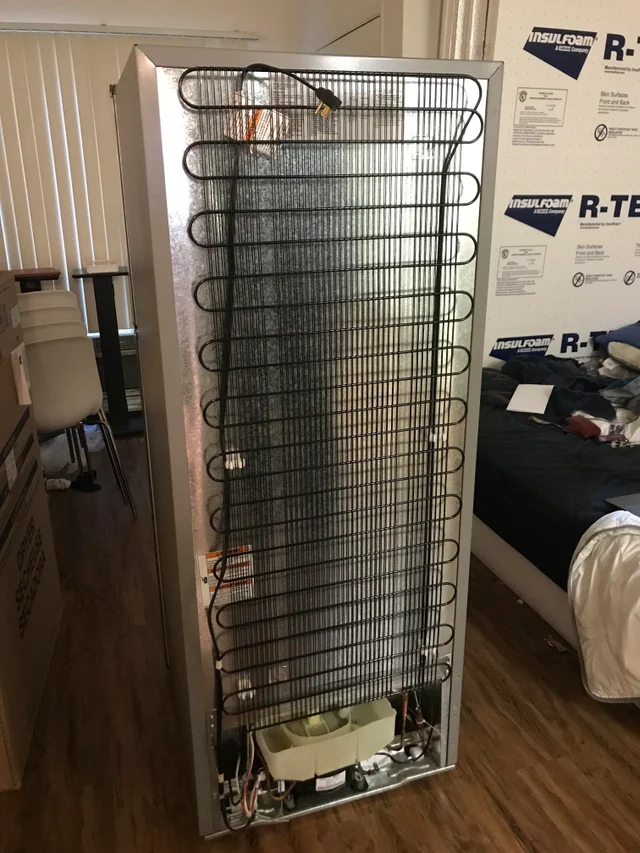There is a freezer in my kitchen. It has frozen fish fingers and spinach and potato waffles and leftovers. The food stays below freezing temperature using the principle of latent heat. The freezer pumps heat from the inside of the box to the outside. The back of the freezer looks like this:
The pipes are warm to the touch. This is where the heat taken from inside the box goes.
Suppose the freezer uses 200 Watts. I also have a small space heater that uses 200 Watts. I could leave the freezer in the kitchen with the pipes against the wall, essentially wasting the exhaust heat, and turn on the heater in the living room. Or I could move the freezer to the middle of the living room so the pipes are exposed. Then we sit on the couch and warm our hands around it.
From a heating point of view, is there any benefit to using the heater rather than the freezer?
One might imagine the heater converts electricity to heat more efficiently. But one second thought, is not every electrical device just an indirect way to convert electricity to heat? Usually a device is called inefficient if it is designed to do something other than create heat, and it makes a small amount of heat.
The more general question -- is every electrical device as good of a heater as any other? For example the big old television puts out a lot of waste heat. But that just means we can leave off the radiators, right? Or is there more to it?

